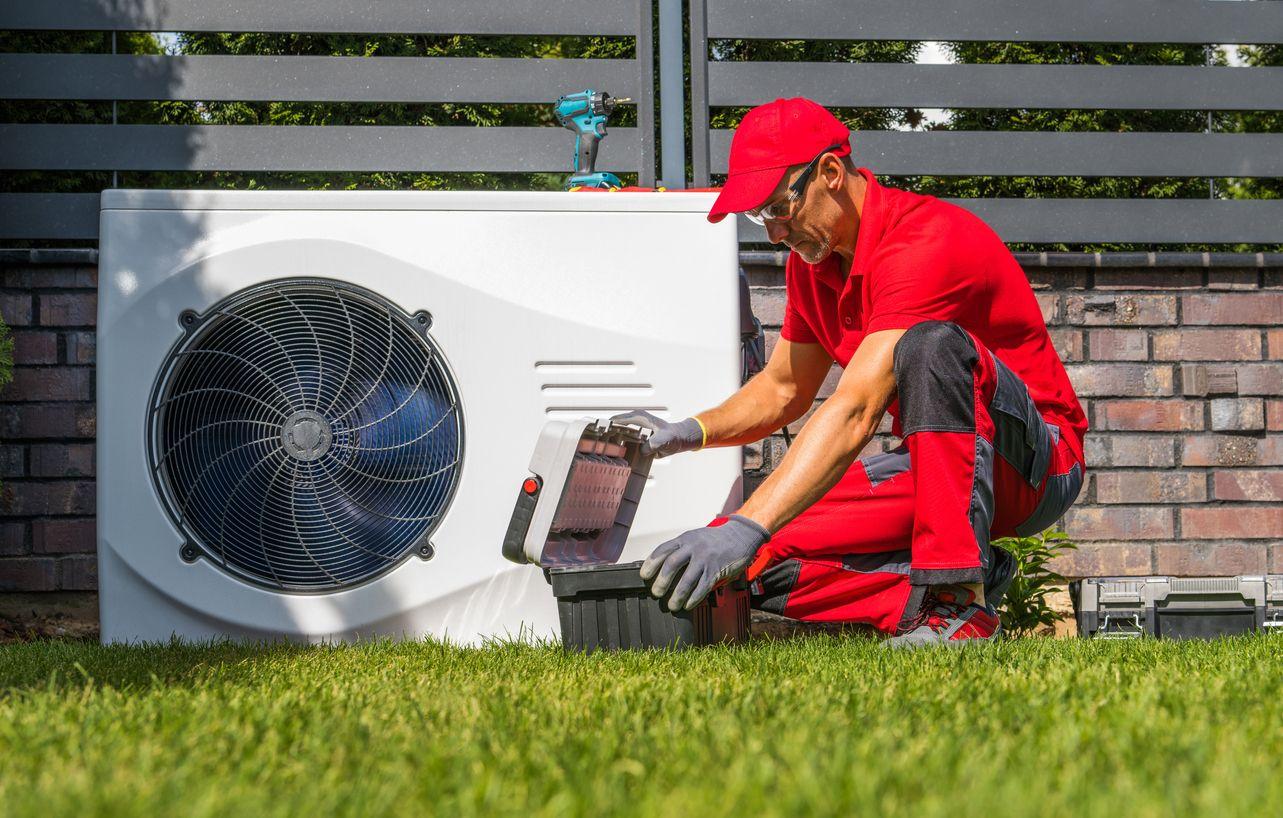Is a Packaged Heat Pump Unit Different Than a Traditional Heat Pump?

Armed with tax incentives and rebates, the popularity of heat pumps continues to soar. Heat pumps are an energy efficient and environmentally friendly alternative to traditional heating and cooling systems. What really sets them apart, though, is their ability to provide both heating and cooling for year-round comfort.
If you’re relatively new to heat pumps, it’s important to note that you have options, including choosing between a traditional heat pump and a packaged heat pump unit. Keep reading as HVAC.com, your trusted advisor for all things HVAC-related, discusses the differences between these two types of heat pumps and what might be the better option for your home.
What Is a Heat Pump, and How Does It Work?
Air-source heat pumps exchange heat between the inside of a home and the outside air. During the summer, to effectively cool a home, heat pumps work similarly to central air conditioners by using refrigerant to remove warm air from indoors and release it outside through the compressor unit.
During the colder months, heat pumps work in reverse – the refrigerant extracts warm air from the outside air to provide indoor heating. Even when it’s cold outside, there’s enough heat outdoors to effectively keep a home warm and comfortable. Heat pumps operate solely on electricity, eliminating the need for fossil fuels such as natural gas or oil.
Although some newer, more technologically advanced heat pumps can operate in temperatures below zero, other models stop working as effectively once the temperature dips below freezing, creating the need for a supplementary heating source such as a gas furnace or baseboard heating system.
Significant heat pump tax credits and rebates are available for the purchase and installation of a heat pump system.
The Difference Between Packaged and Traditional Heat Pump Systems
Let’s delve into the differences and similarities between traditional heat pump systems and packed heat pumps to help you decide which might work best for your home.
Installation and Space Requirements
A traditional air-source heat pump system consisting of an indoor unit (air handler or furnace) and an outdoor condenser unit is the most common heat pump setup found in homes. These units are installed separately and are connected by refrigerant lines. Because traditional heat pump systems have both inside and outside components, heat pump installation is a bit more complex and timelier. You’ll also need a dedicated space indoors for the furnace or air handling unit.
Meanwhile, a packaged heat pump system is just as its name suggests – all of the heating and cooling components are “packaged” inside a single unit located outside including the compressor, evaporator and condenser coils, refrigerant, blower fan, and a control system. Packaged units simplify the installation process because they are assembled in advance, which can lower installation costs. They also free up space indoors because they are installed on a slab next to your home or on a flat rooftop.
Aesthetics
Packaged heat pumps are often considered more aesthetically pleasing than traditional heat pumps because, in some homes, they eliminate the need for a separate indoor air handling unit, providing a cleaner and more streamlined look to the interior of a home. The consolidated design of packaged units contributes to a visually appealing and less obtrusive appearance in outdoor spaces.
Cost Differences
In terms of cost, traditional heat pumps and packaged units are priced relatively the same. According to ThePricer.org, the standard cost of a standard residential heat pump is between $2,500 and $7,500, while a packaged heat pump generally falls between $3,500 and $8,500.
The Bottom Line About Packaged and Traditional Heat Pumps
Both packaged and traditional heat pumps offer efficient heating and cooling solutions for homes, but the choice ultimately depends on your specific requirements and preferences.
It’s important to note that if you live in a climate with extremely cold winters, you’ll likely need to invest in a backup heating source such as a gas furnace on those really cold days. Since the furnace also doubles as an air handler, it usually makes more sense to buy a traditional heat pump. However, if you live in a climate with mild winters that don’t require furnaces, a packaged heat pump may be the ideal choice if you’re looking to free up space indoors.